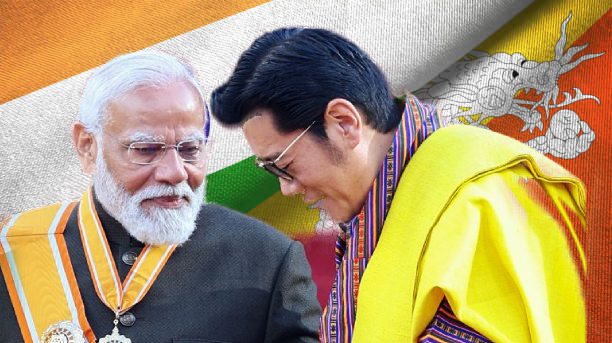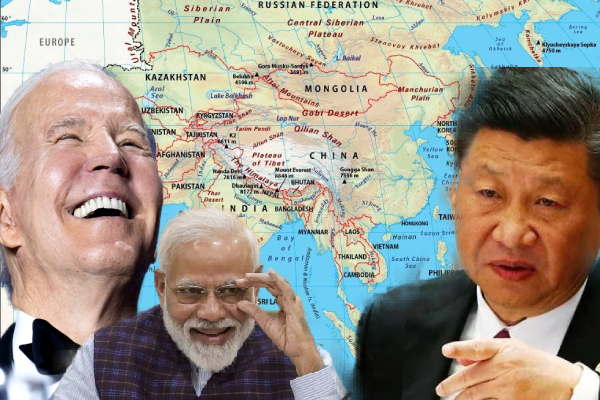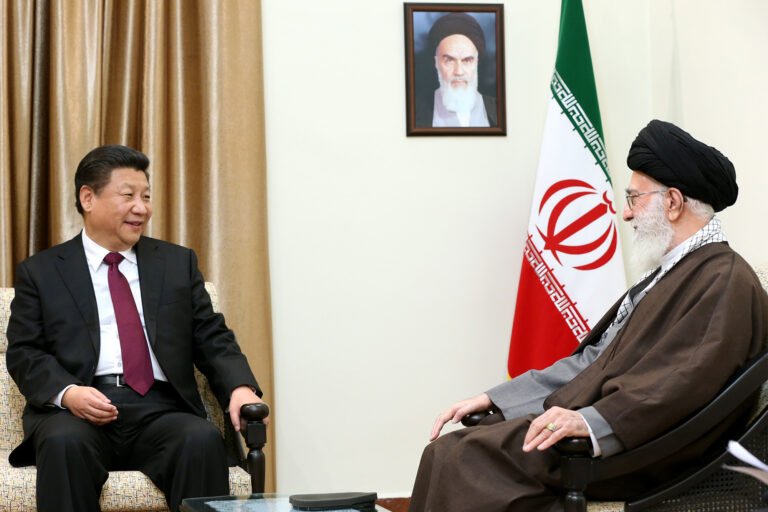Prime Minister of Bharat Narendra Modi visited Bhutan on 21-22 March just a week after Bhutan PM Tshering Tobgay concluded his India visit. PM Modi received a grand reception at Paro International Airport of Bhutan and also received Bhutan’s highest civilian award, the Order of the Druk Gyalpo.
Cooperation in sectors like renewable energy, digital connectivity, space, agriculture, tourism, environment and youth exchange was discussed. In this blog, we delve into the multifaceted dimensions of the India-Bhutan relationship, tracing its origins, analyzing its current state, and envisioning its future trajectory.
Genesis of Friendship
The foundation of the India-Bhutan relationship was laid centuries ago, with historical ties dating back to the establishment of diplomatic contacts between the Bhutanese and the princely states of India. However, it was during the British colonial era that formal relations between the two nations began to take shape. The Treaty of Sinchula in 1865, followed by the Treaty of Punakha in 1910, marked significant milestones in defining the bilateral relationship, with Bhutan acknowledging British suzerainty over its foreign affairs.
With the dawn of independence in India in 1947, the dynamics of the India-Bhutan relationship underwent a transformation. The Treaty of Friendship between India and Bhutan, signed in 1949, reaffirmed the principles of mutual respect, non-interference, and cooperation, laying the groundwork for a robust partnership in the decades to come. India played a pivotal role in Bhutan’s journey towards modernization, providing crucial assistance in areas such as infrastructure development, education, healthcare, and capacity building.
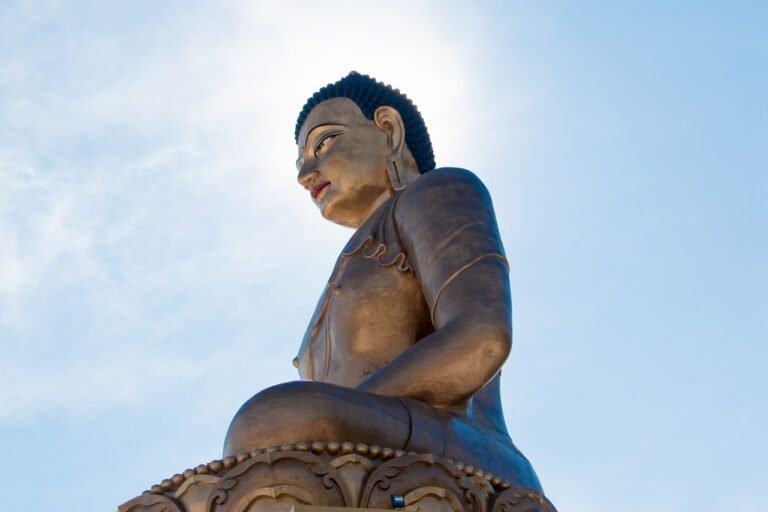
Neighbourhood first policy
India’s Neighborhood First Policy represents a strategic approach aimed at prioritizing and strengthening relations with its neighbouring countries. This policy underscores India’s commitment to fostering stability, prosperity, and cooperation within the South Asian region. By placing a premium on its immediate neighbours, India aims to cultivate mutual trust, address common challenges, and promote inclusive growth across borders. Through diplomatic initiatives, economic partnerships, and cultural exchanges, India seeks to build enduring relationships that are founded on principles of mutual respect, sovereignty, and non-interference.
Central to India’s Neighborhood First Policy is the objective of enhancing bilateral ties with neighbouring countries through dialogue and collaboration. By engaging in constructive diplomacy and promoting people-to-people contacts, India endeavours to build bridges and overcome historical grievances or misunderstandings. Moreover, India’s efforts to deepen economic cooperation, infrastructure development, and trade facilitation with its neighbours contribute to the creation of a more interconnected and prosperous region.
India and Bhutan share a strategic partnership rooted in mutual security interests and geopolitical realities. Bhutan’s strategic location between India and China makes it a crucial actor in regional dynamics, and both countries have worked closely to address common security challenges. India has extended unwavering support to Bhutan’s sovereignty and territorial integrity, as evidenced by its response to the Doklam standoff in 2017, where Indian forces intervened to protect Bhutanese interests.
The India-Bhutan relationship is not confined to the realms of geopolitics and economics but is deeply enriched by cultural affinities and people-to-people ties. Buddhism, which holds a central place in Bhutanese society, serves as a bridge between the two nations, fostering spiritual and cultural exchanges. India’s role as a guardian of Buddhist heritage sites in Bhutan, including sacred monasteries and temples, underscores the depth of cultural connectivity between the two countries.
China a snake in backyard
If we examine Bhutan’s geographical position on the world map, it finds itself nestled between the two major powers of India and China. Like its other neighbouring countries, China shares a border dispute with Bhtan. The border talks between Bhutan and China have resumed, with India asserting that the resolution of border disputes lies within the bilateral domain of the two countries.
New Delhi is concerned that a potential border agreement between Bhutan and China might involve the exchange of territories, including the Doklam Plateau, situated at the tri-junction of India, Bhutan, and China. The Doklam Plateau holds strategic significance as it is in close proximity to India’s Siliguri corridor, linking mainland India with Northeast India. The 2017 Doklam standoff between India and China underscores the security implications any border settlement between Bhutan and China might have for India.
China’s economic influence in Bhutan is on the rise, accounting for over a quarter of Thimphu’s trade. Chinese investments span various sectors such as telecommunications, highways, and hydropower. India is keenly observing China’s expanding presence in Bhutan and, in an effort to counterbalance it, has allocated the largest aid share to Bhutan among South Asian countries in its interim budget for FY 2024-25, amounting to Rupees 20.68 billion. Plans for rail connectivity between the Northeastern Indian state of Assam and the Bhutanese town of Gelephu are also underway.
cooperation in hydropower projects
The hydropower project cooperation between India and Bhutan stands as a shining example of the deep-rooted partnership and mutual benefit fostered by the two neighboring nations. With Bhutan’s abundant water resources and India’s expertise in energy generation and infrastructure development, the collaboration in hydropower projects has emerged as a cornerstone of their bilateral relations. The Chukha Hydropower Project, commissioned in the 1970s, marked the beginning of this fruitful cooperation, paving the way for subsequent ventures such as the Kurichhu, Tala, Punatsangchhu, and Mangdechhu projects. Through these initiatives, India has provided crucial financial, technical, and logistical support, while Bhutan has leveraged its natural resources to meet its energy needs and bolster its economy.
Moreover, the hydropower project cooperation between India and Bhutan extends beyond mere economic transactions, embodying the principles of trust, solidarity, and shared prosperity. By harnessing Bhutan’s hydropower potential, India not only meets its own energy demands but also contributes to Bhutan’s socio-economic development and self-sufficiency. The revenue generated from hydropower exports forms a significant portion of Bhutan’s GDP, enabling investments in healthcare, education, and infrastructure. Furthermore, the sustainable and eco-friendly nature of hydropower aligns with both countries’ commitment to environmental conservation and climate action, underscoring the symbiotic nature of their cooperation in the energy sector
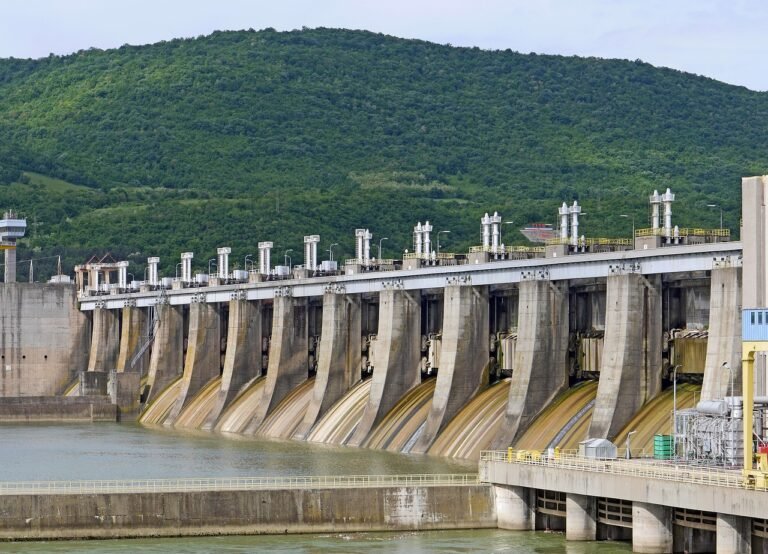
Future Trajectory of India-Bhutan relations
As India and Bhutan navigate the complexities of the 21st century, the future trajectory of their relationship remains promising yet contingent upon several factors. Both countries must continue to invest in strengthening institutional mechanisms for dialogue and cooperation, fostering greater people-to-people exchanges, and leveraging their respective strengths for mutual benefit. In an era marked by geopolitical shifts and global uncertainties, the enduring friendship between India and Bhutan serves as a beacon of stability and cooperation in South Asia.
“Recalling that Bharat for Bhutan and Bhutan for Bharat was an abiding reality, the two leaders discussed ways to further the transformative partnership. They explored initiatives to expand bilateral collaboration in the fields of energy, development cooperation, youth, education, entrepreneurship and skill development. The two leaders also discussed progress in connectivity and investment proposals including in the context of the Gelephu Mindfulness City project,” the MEA said.
Describing Prime Minister Narendra Modi’s leadership as “extraordinary and exemplary”, Bhutan’s King Jigme Khesar Namgyel Wangchuck said Friday that with Modi at the helm, India’s future is bright and “a successful India means a bright future for Bhutan.
